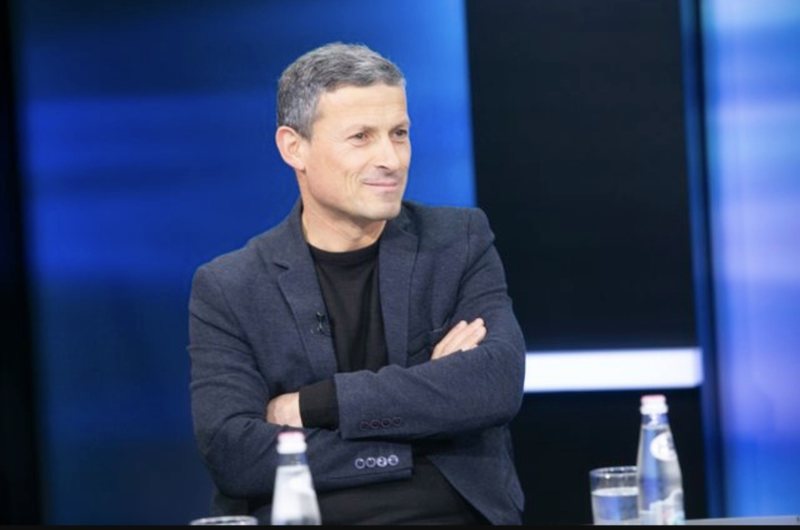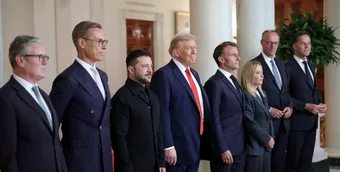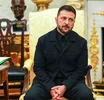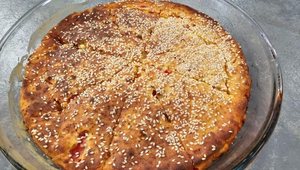
Today's political Albania, the biggest disaster since 1997!


Since coming to power in 2013, the power of Prime Minister Rama and his government has been growing steadily. The last elections held about a month and a half ago gave him a parliamentary majority of 83 seats, which is close to a qualified majority of 84 seats, a majority that would easily allow him to pass any law he wants. In practice, he has this majority of 84 seats because three seats, as is known, were won by Tom Doshi's Social Democratic Party, which is in alliance with him.
Now the country faces the increased power of Prime Minister Rama due to the election results but also the risk that this power will come and become ever larger, more dangerous and more uncontrollable. If you add to this situation the fact that the opposition, not simply in numbers, is extremely weak due to the total loss of political purpose, political orientation and political awareness, then the risks are much greater.
Bernard de Juvenel, who has extensively studied the nature of power and the great dangers that can come from it, says that power is a force that strives to grow continuously, has the logic of expansion and centralization, destroys intermediate bodies and freedoms despite the fact that it always says that it is acting in the name of the people and the law.
Power always takes on functions, adds to them, increases its powers. The growth and expansion of power is done in the name and for “high ideals”. Power, says De Jevenel, sees every limitation on it as a challenge that is made to it and sees every obstacle to it as something that it must overcome.
We are at a very dangerous point. For years, the power of the socialist government has been expanding. It has made its tendency clear from the beginning. In the fall of 2013, the government of Prime Minister Rama, after several decisions that were facing opposition from the Constitutional Court, said they “thought they had the right to change the constitution with government decisions, just like normative acts.” Of course, at that time and even later, the government has limited and taken power from local government, from mediation bodies such as the media, the university, perhaps even from the mosque and the church (this is something more complicated anyway), from the family, from the few forms or organizations of civil society, from student organizations, etc.
Kryeministri Rama do të përdorë padyshim “idealet” e larta për të zgjeruar pushtetin e tij. Ai do ta justifikojë rritjen e fuqisë dhe kompetencave me anë të integrimit Europian dhe të ndërtimit të një Shqipërie anëtare e BE-së. Gjithnjë ai ka patur një “ideal” të lartë që nga viti 2013. Një herë ka qenë “ne bëjmë shtet” një herë ka qenë “ ne transformojmë Shqipërinë” etj. Tani është ne e “integrojmë në BE”. Çdo herë ku pushteti rritet (ai nuk nbalet së luftuari që të rritet), ai dobëson parlamentin. De Juvenel i cili ka marrë në analizë disa prej formave më të rënda të rritjes dhe zgjerimit të pushtetit thotë se parlamenti, legjislativi si një trupë që kontrollon qeverinë, që kufizon dhe balancon pushtetin e qeverisë e humbet forcën, dobësohet, bie nën kontroll të qeverisë.
Në Shqipëri gjithmonë në këto 35 vite parlamenti nuk ka qenë një organ i fortë që të kontrollojë qeverinë por gjithsesi në mjaft raste ai ka patur një lloj hapësire ose force balancuese (sidomos para vitit 2008). Në vitet e qeverisjes së kryeministrit Rama parlamenti ka ardhur gjithnjë duke u bërë shumë më i dobët.
Tani që kryeminstri Rama ka thuajse 84 mandate parlamenti do të jetë edhe më i dobët dhe gati i asfiksuar.
Pak ditë më parë qeveria e Partisë Socialiste dhe kryeministri Rama dhanë një shfaqje të tmerrshme për atë që pritet të jetë “pushteti”, për atë që pritet të jetë lufta për zgjerim dhe të pushtetit. Kryeministri Rama kërkoi që ai dhe disa deputetë me përvojë të mbajnë leksione, të mësojnë deputetët e rinj. Ata duhet të mësojnë mbi çfarë është parlamenti, çfarë është integrimi në BE, çfarë janë Aquis Communautaire, cila është procedura parlamentare etj. Grupi parlamentar i PS-së do të ketë rreth 50 deputetë të rinj nga 83 gjithsej.
Depuetët, parlamenti janë përfaqësues të popullit, janë zgjedhur nga populli në mënyrë që të ndërtojnë një qeveri që mbron interesin e popullit. Deputetët e kontrollojnë këtë qeveri, deputetët e shkarkojnë këtë qeveri, deputetët bëjnë ligje për të rregulluar jetën e njerëzve dhe mbrojtur liritë e tyre dhe e kontrollojnë qeverinë se si po i zbaton këto ligje. Deputetët nuk mund të merren në klasa apo salla dhe të dëgjojnë mësimet nga kryeministri apo nga deputetë që i cakton kryeministri. Kryeministri nuk mund t’u mbajë depuetëve leksion apo t’u japë mësim se si duhet ushtruar detyra e deputetit. Deputeti mund t’i kërkojë llogari kryeministrit se si ai po e ushtron detyrën.
It is clear that the government and the parliament are one body, they are a power in only one hand. It is the nature of the power that seeks to grow, to usurp powers, to limit freedom, to see every obstacle as something that must be overcome. It is clear that this nature of power will violate freedom and rights, it is clear that the media and other intermediary bodies will fall even more into the hands of this power. It is clear that our democracy will become even more hybrid, authoritarianism will become even stronger. We are facing a very dangerous combination. The nature of power, the nature of the totalitarian mind of the government, the very deep result in the elections and the moral and political collapse of the opposition are combined. There is no more unfortunate combination.

The Ukraine summit that ignored the tough questions
ideas
top
Alfa recipes
TRENDING 
services
- POLICE129
- STREET POLICE126
- AMBULANCE112
- FIREFIGHTER128



























